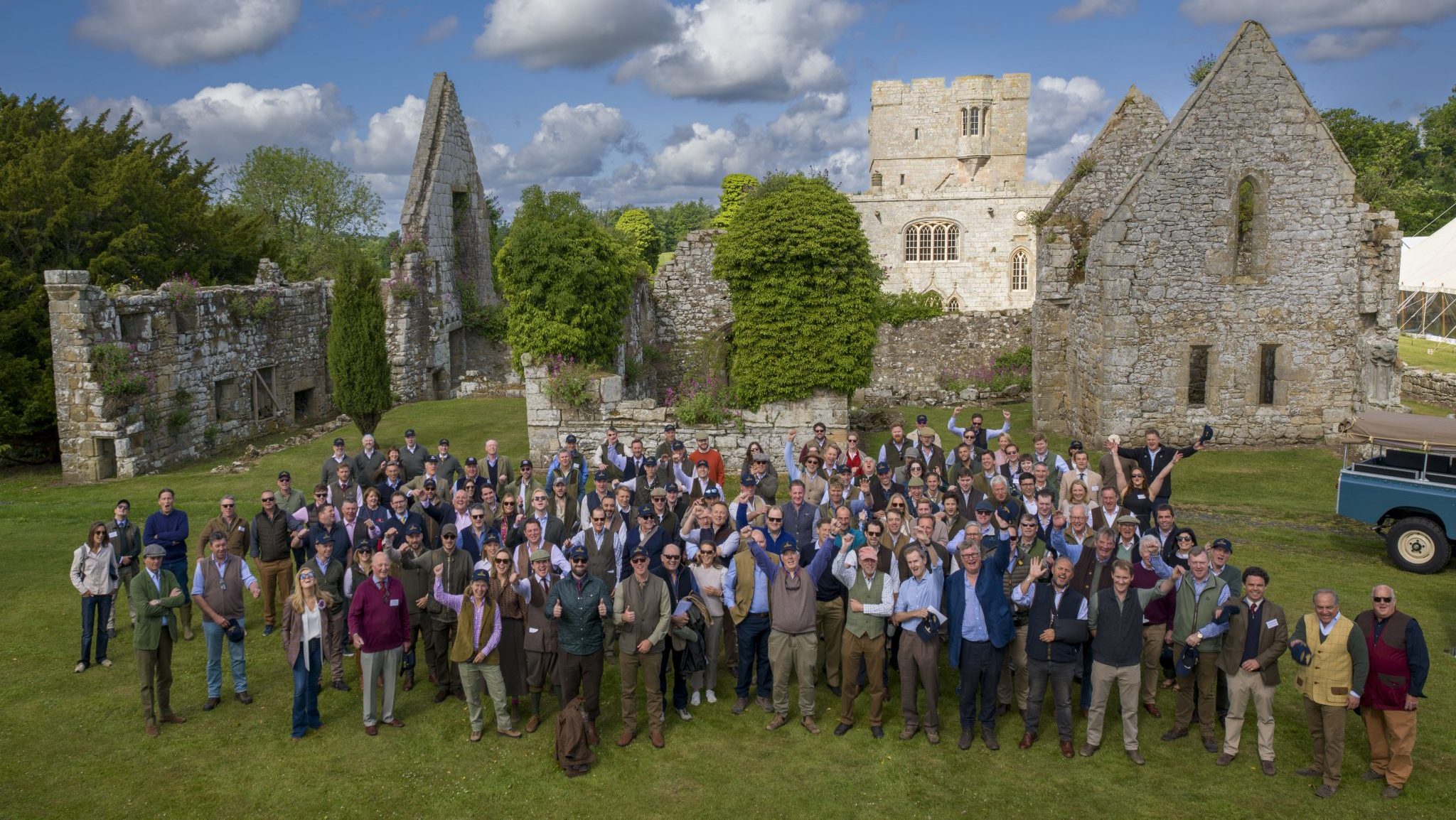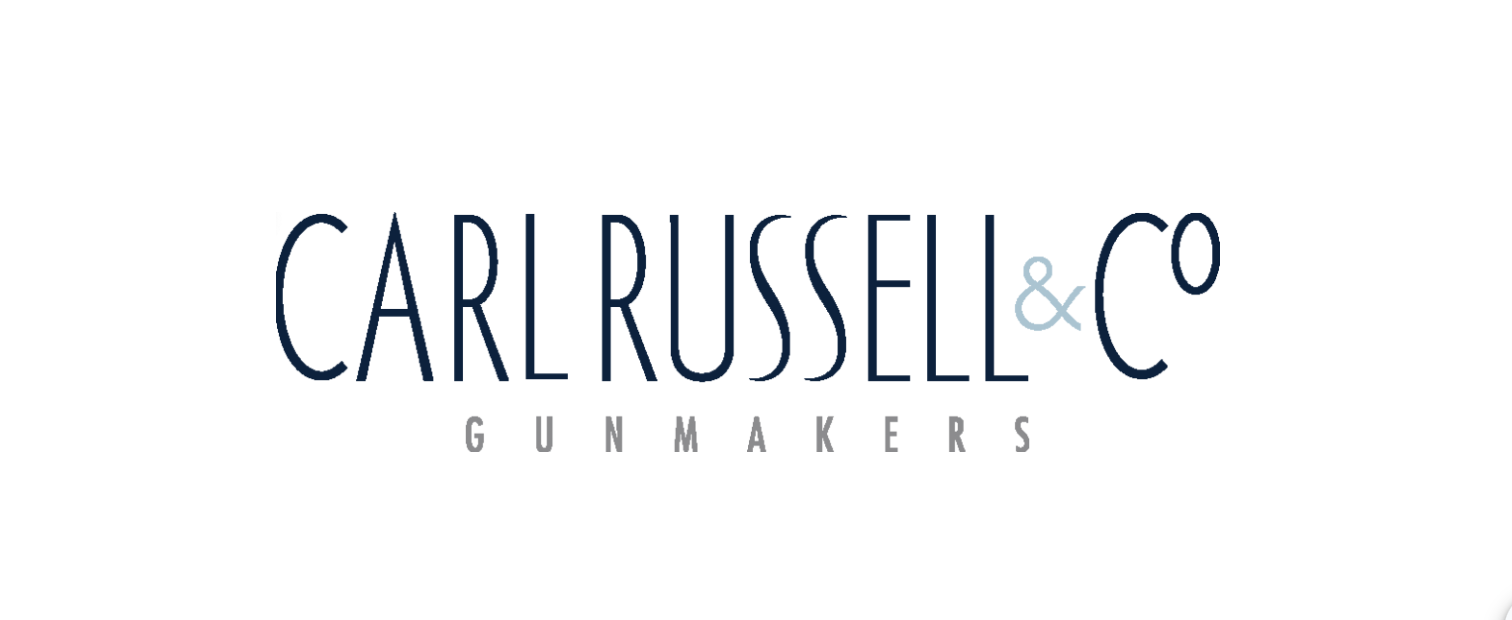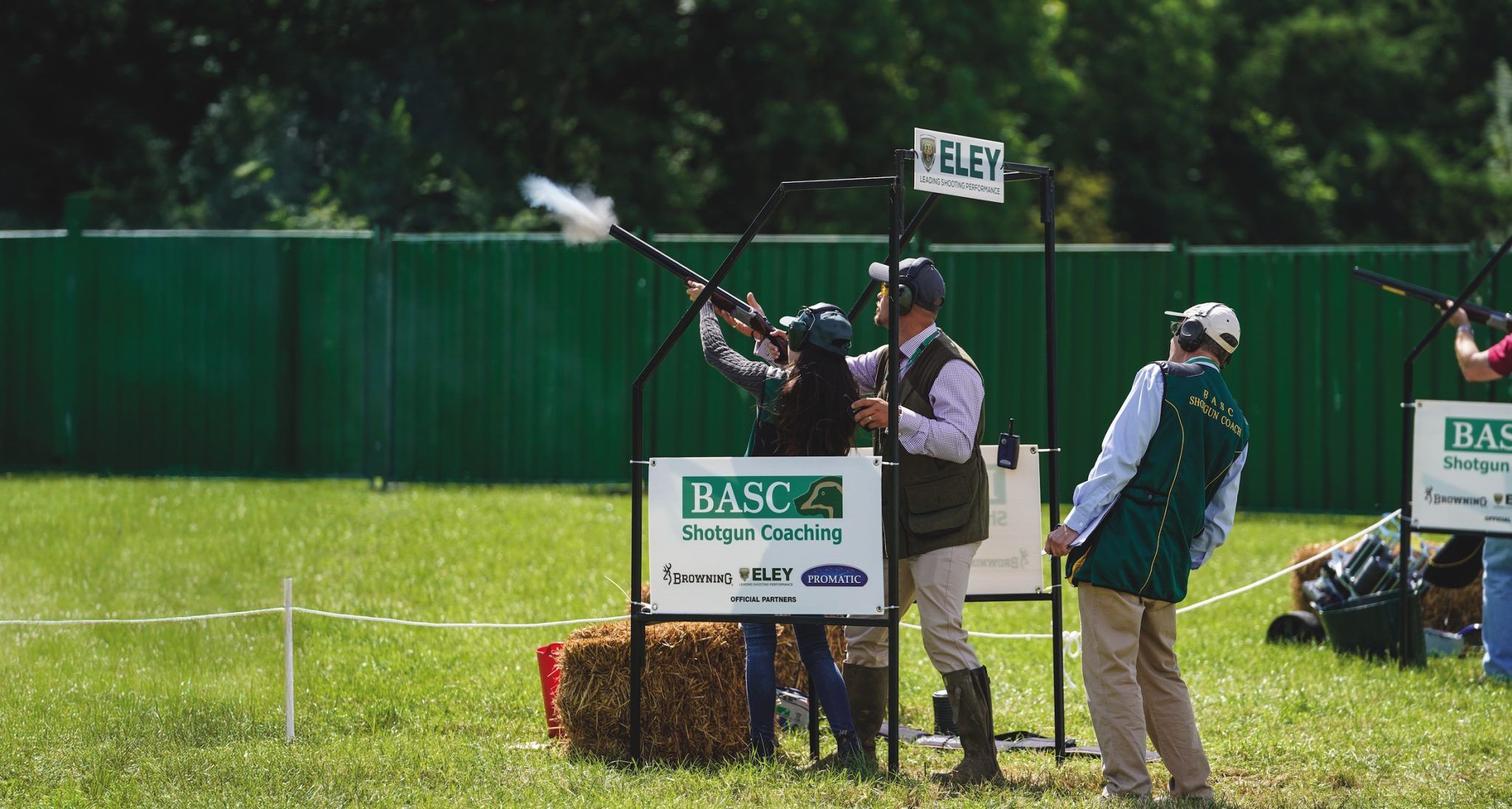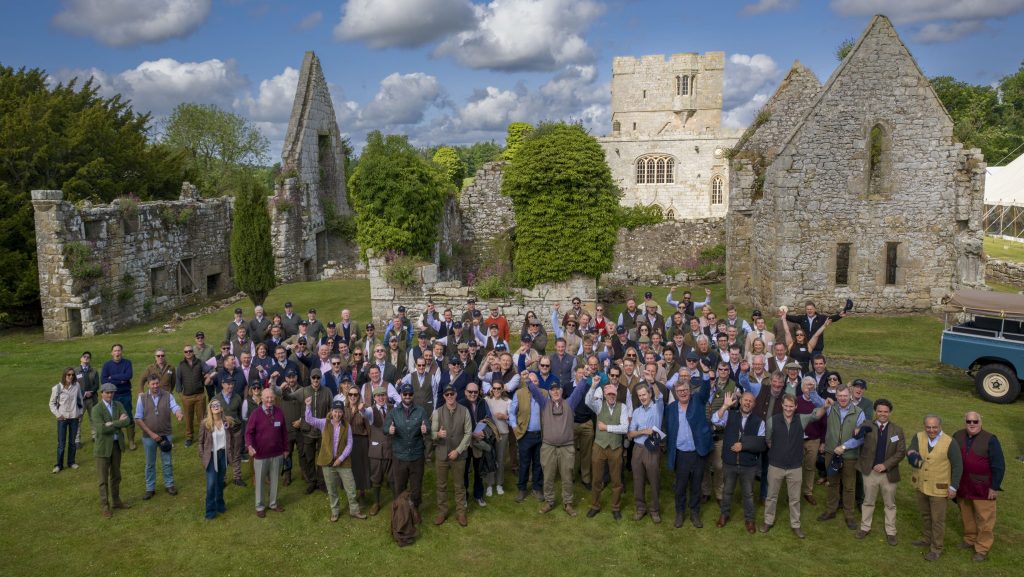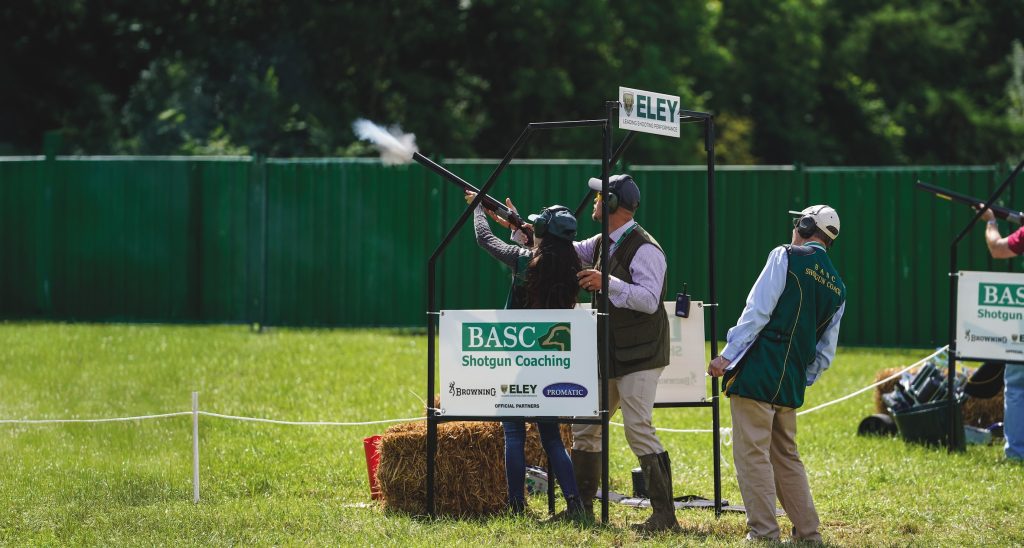News
Francis Fulford of Great Fulford interview
Would you like to speak to our readers? We offer sponsored articles and advertising to put you in front of our audience. Find out more.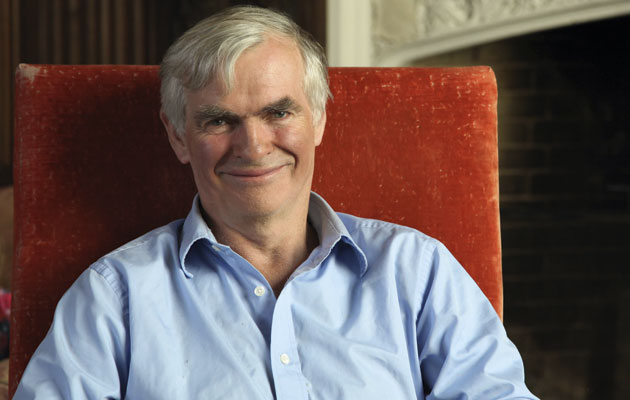
Robert Cuthbert: So Francis, you’ve refreshed the attitude towards shooting and hospitality at Great Fulford?
Francis Fulford: “As with many country houses now, we carry out a variety of activities, one of which is shooting. The shoot is getting up there and doing well. I have a shooting tenant and an excellent gamekeeper, both in their third year here. We allow guests to stay in the house with the eight en-suite bedrooms; it appeals to a lot of people as a day’s shooting can be ruined by having to get up early and drive around miles of countryside only to get lost.”
RC: Who introduced you to shooting?
FF: “I started shooting with my father in the 1960s – a different world. We still walked-up after wild grey partridges in this weird part of Devon. We walked every acre of the estate in September and October for the odd chance of a shot. Looking back at the game book, my father’s shooting in Devon was very different. If he went out and they shot a hundred birds or more, it was a big day in Devon in the 1950s and 1960s. Things have changed amazingly. He’d be surprised by the scale of shooting now. It’s something I don’t think any of us thought would happen.”
RC: So, what’s really changed it all?
FF: “I suppose the advent of game cover: it’s revolutionised shooting. It used to be nothing but coverts, shooting from woods. When I was a boy, pheasant shooting was as it had been in 1900 – rearing fields with hens in coops. Keepers still had bicycles.”
RC: Who are your shooting contemporaries?
FF: “Devon is like a big club and we all shoot together. We all shoot at each other’s shoots. So, I shoot at places like Powderham Castle, Castle Hill, Haddeo… Devon and good shooting are now synonymous.”
RC: Do you ever shoot with your father’s guns?
FF: “I do, although I despair of the bloody things as they have a tendency to give up the ghost at the wrong moment. I couldn’t shoot with an over-under, although I sometimes pick up an over-under 20-bore. It’s what you have been brought up with, isn’t it?”
RC: Who built your father’s guns?
FF: “William Evans. I’ve still got the invoice for them, from 1948 – £250 for a pair of guns… not bad for best London sidelocks. I suppose in modern money you would have to multiply that figure by about 40, so you would come to something in the region of £10,000 or £12,000 now. It’s also quite interesting how expensive cartridges were in the 1940s and 1950s… very expensive then.”
RC: Your children’s introduction to shooting must have been a little more laidback than you father’s?
FF: “My father was born in 1898. He was a Victorian, but not in his ways. He was a relaxed man. He was good with us and we loved him. I’ve got three boys.”
RC: Who would be the most accomplished of the boys? I recall Arthur seemed quite tidy shooting dinner plates off the ramparts on television recently.
FF: “Probably Edmund, my youngest; he has the best hand-eye coordination. He’s always been a good cricketer. He’s good at sport; he’s good at games, it’s that simple thing, hand-eye coordination.”
RC: Do they have their own guns?
FF: “I have two 20-bores and two 12-bores. I’ll have to go to auction and buy another couple of 12-bores one day. At the moment they use my guns. Edmund uses a 20-bore – a glorious gun by Sable, I think. I also have a Purdey sidelock – a 20-bore – beautifully engraved. I got it for £110. A non-ejector sadly or it would be worth an awful lot.”
RC: I think I know the answer, but do you swear a lot when you miss?
FF: “Yes I do sometimes. It’s not the difficult birds you mind missing, it’s when you take on something you should hit and you miss it and you think where the f*** was I there … probably in front of it, actually. Yes, I can swear a bit.”
For more information on Francis Fulford and Great Fulford, visit greatfulford.co.uk
Related articles
News
Duke's Challenge raises record-breaking £685,000 for GWCT
The shooting community has backed wildlife conservation in spectacular fashion, raising a record-breaking £685,000 for wildlife conservation
By Time Well Spent
News
‘So what exactly do you lot do, then?’
You’d be surprised how many projects staff and volunteers deliver, as well as BASC’s vital work helping members, says Conor O’Gorman
By Time Well Spent
Manage Consent
To provide the best experiences, we use technologies like cookies to store and/or access device information. Consenting to these technologies will allow us to process data such as browsing behavior or unique IDs on this site. Not consenting or withdrawing consent, may adversely affect certain features and functions.
Functional Always active
The technical storage or access is strictly necessary for the legitimate purpose of enabling the use of a specific service explicitly requested by the subscriber or user, or for the sole purpose of carrying out the transmission of a communication over an electronic communications network.
Preferences
The technical storage or access is necessary for the legitimate purpose of storing preferences that are not requested by the subscriber or user.
Statistics
The technical storage or access that is used exclusively for statistical purposes.
The technical storage or access that is used exclusively for anonymous statistical purposes. Without a subpoena, voluntary compliance on the part of your Internet Service Provider, or additional records from a third party, information stored or retrieved for this purpose alone cannot usually be used to identify you.
Marketing
The technical storage or access is required to create user profiles to send advertising, or to track the user on a website or across several websites for similar marketing purposes.

